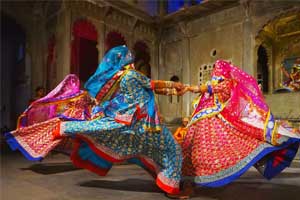Cultural Identity and Its Importance: Cultural identity is an integral aspect of an individual’s sense […]
![]()

Culture and Tradition: The Backbone of Societies
Culture and tradition play a vital role in shaping societies across the globe. They are the backbone of every civilization, shaping the way people live, think, and behave. Culture encompasses the values, beliefs, customs, and traditions of a particular community, while tradition refers to the practices and customs that have been passed down from generation to generation.
Culture and tradition are significant because they help people to understand their history, roots, and identity. They provide a sense of belonging and enable people to connect with their past, present, and future. Moreover, they help to preserve knowledge, skills, and practices that are essential to human survival and well-being.
Every culture and tradition has its unique features that make it distinct from others. They reflect the diversity and richness of human experiences and provide a unique perspective on the world. Culture and tradition are also dynamic and evolve over time. They adapt to changing circumstances and reflect the shifting attitudes and beliefs of people.
The preservation of culture and tradition is crucial to maintain the diversity of the world’s societies. However, the rapid pace of globalization and modernization is threatening many of the world’s traditional cultures. Many communities are losing their languages, customs, and traditions as they adopt modern ways of life.
Therefore, it is essential to promote and preserve traditional cultures and practices to ensure the continuity of human heritage. Governments and organizations can play a crucial role in preserving traditional cultures by supporting cultural events, museums, and educational programs that promote awareness and appreciation of traditional cultures.
In conclusion, culture and tradition are an integral part of human societies, shaping the way people live, think, and behave. They reflect the diversity and richness of human experiences and provide a unique perspective on the world. Therefore, it is crucial to promote and preserve traditional cultures to ensure the continuity of human heritage.
Cultural Identity and Its Importance: Cultural identity is an integral aspect of an individual’s sense […]
![]()
Traditional Ceremonies and Rituals: Ceremonies and rituals have played a significant role in human societies […]
![]()
Cultural Traditions of Specific Countries or Regions: The world is a mosaic of diverse cultures, […]
![]()
Traditional Architecture and Landmarks: In a world that constantly embraces modernity, there is a charm […]
![]()
Traditional Storytelling and Literature: Preserving Culture Through Narratives Introduction: Traditional storytelling and literature have been […]
![]()
Introduction In today’s interconnected world, cultural diversity and inclusion have become crucial aspects of society, […]
![]()
Cultural Symbols and Their Meanings: Unveiling the Power of Visual Communication Introduction: Cultural symbols play […]
![]()
Traditional Healing Practices: Traditional healing practices have been an integral part of human civilization for […]
![]()
Traditional Sports and Games: In a fast-paced, technology-driven world, where digital entertainment and virtual gaming […]
![]()
Traditional Art and Craftsmanship: The world of art and craftsmanship is a testament to human […]
![]()